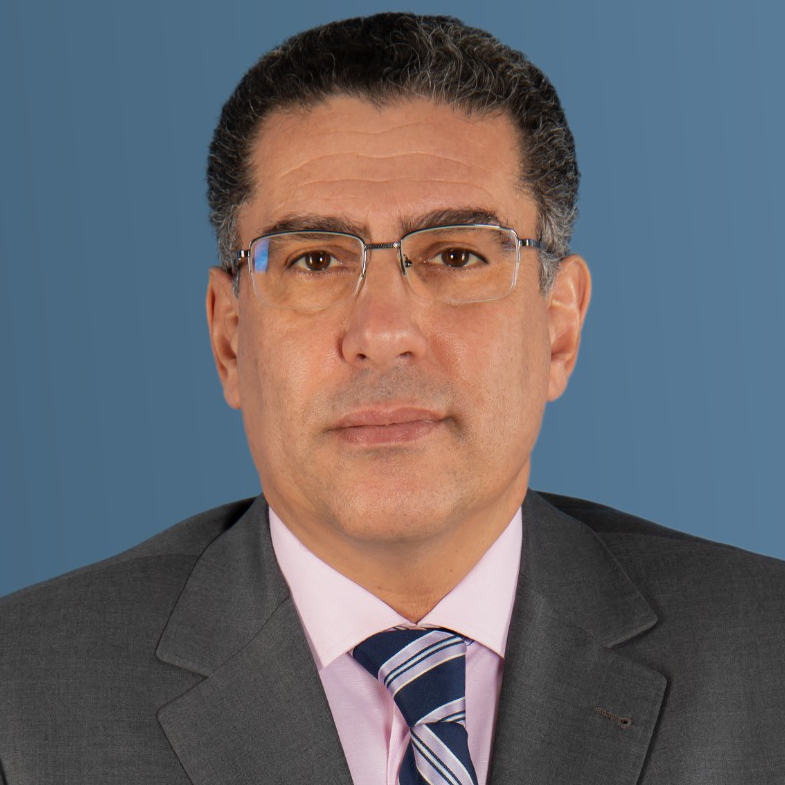Macroeconomic Policies in times of COVID-19 in Emerging Markets: Early Lessons
Broadcast live
The Policy Center for the New South is hosting a webinar titled “Macroeconomic Policies in times of COVID-19 in Emerging Markets: Early Lessons”, on Wednesday, December 9, at 15:00 (GMT+1/Moroccan time).
The human and economic impact of the Covid-19 pandemic remains uncertain and difficult to forecast. However, it is a given that the global economy will be in recession this year (at around -4.4%) with a slight rebound in 2021, forecasted at 5.2%. While the entire global economy has been impacted by the crisis, differences exist between advanced markets on one side and developing economies on the other. These differences pertain to the channels of transmission, the social and economic impacts in the field, the policy responses and the prospects for the short and mid-term.
When the pandemic erupted, large EMEs have seen their currencies depreciating, but following the monetary easing from monetary authorities in advanced economies, these currencies have started appreciating in nominal terms. These responses have also helped to provide the liquidity needed for a good functioning of the global economy.
In the developing world, monetary and fiscal responses to the impact of the pandemic have been sizable and exceptional. Quantitative (and qualitative) easing coupled with large fiscal measures have aimed at preserving household income and cashflow for businesses.
The objectives of this session will be:
- Provide an overview on the set of policy responses (fiscal and monetary) used by EMEs following the Covid-19 crisis.
- To what extent have the macro policy responses in advanced economies helped emerging markets to better design their monetary and fiscal response to the economic crisis?
- Unconventional monetary policies have most of the time been used solely by advanced central banks but in 2020 several EMEs (e.g., Poland, Chile, Hungary, India, Indonesia, Philippines, South Africa), how could one explain this policy reversal? To what extent has this been effective in providing a liquidity buffer to EMEs?
- What are the key reforms in a post-Covid-19 era in the entire developing world? Namely the kind of reforms to ensure progressive recovery and resilience for emerging and low-income countries.
|
Panel: Macroeconomic Policies in times of COVID-19 in Emerging Markets: Early Lessons |
|
|
15:00 – 15:45 |
Moderator: Andrés Schipani, East and Central Africa Correspondent, Financial Times
Speakers: Célestin Monga, Professor of Public Policy, Harvard Kennedy School Otaviano Canuto, Senior Fellow, Policy Center for the New South Karim El Aynaoui, President, Policy Center for the New South, Dean, Faculty of Governance, Economics and Social Sciences, Mohammed VI Polytechnic University
|
|
15:45 – 16:15 |
Debate with the audience |
The webinar will be broadcast live on YouTube and Facebook.
Keep me informed
-

Célestin Monga, Professor of Public Policy, Harvard Kennedy School
Célestin Monga is Visiting Professor of Public Policy at Harvard’s Kennedy School of Government, Faculty Associate at the Center for International Development (CID) at Harvard University, and Fellow at the Harvard University Center for African Studies. He is also part-time Professor of Economics at the University of Paris 1 Panthéon-Sorbonne and Research Professor at Peking University’s Institute of New Structural Economics. Monga has held various board and senior executive positions in academia, financial services, and international development institutions, serving most recently as Managing Director at the United Nations Industrial Development Organization (UNIDO), Vice-President and Chief Economist of the African Development Bank Group, and Senior Economic Adviser/Director at the World Bank Group.
Monga has published extensively on various dimensions of economic and political development. His books have been translated into several languages and are widely used as teaching tools in academic institutions around the world. Dr. Monga holds graduate degrees from MIT, Harvard University, and the Universities of Paris and Pau. -

Otaviano Canuto, Senior Fellow, Policy Center for the New South
-

Karim El Aynaoui, President, Policy Center for the New South | Dean, Faculty of Governance, Economics and Social Sciences, Mohammed VI Polytechnic University
-

Andrés Schipani, East and Central Africa Correspondent, Financial Times
Andrés Schipani is the Brazil correspondent for the Financial Times. Before moving to São Paulo, he was the newspaper's Andes correspondent, covering Bolivia, Colombia, Ecuador, Peru, and Venezuela, as well as parts of the Caribbean. Before that, he worked in the FT's New York bureau as a markets and emerging markets reporter. A native of Buenos Aires, he was educated in London, Cardiff, and Oxford. He was also a fellow in business, economics, and financial journalism at Columbia University.









